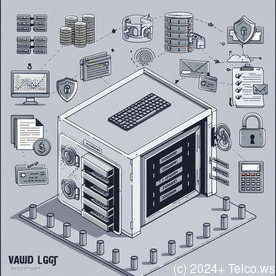
Understanding Perl Module Development




What is Perl Module Development?
Perl module development refers to the intricate process of creating reusable libraries, known as modules, that can be integrated into Perl scripts and applications. These modules act as the essential building blocks for Perl programs, allowing developers to encapsulate functionality in a way that is modular and maintainable. This approach not only simplifies coding but also enhances the reusability and scalability of code across multiple programs, making it easier to implement updates and new features without extensive rework.
The practice of developing modules is fundamental in modern software engineering. With business requirements becoming increasingly complex, the need for efficient, reusable solutions has never been greater. Perl, being a powerful and versatile string-processing language, equips developers with the necessary tools to create specialized modules tailored to client specifications, thus enhancing the overall productivity and maintainability of software projects across various sectors such as finance, healthcare, and web development.




The Importance of Perl Modules
Why does Perl module development matter? Here are several critical factors to consider:
- Code Reusability: The primary advantage of creating modules is their ability to be reused across multiple projects. This reduces redundancy, promoting a more efficient workflow and ensuring that best practices are consistently followed throughout the development cycle.
- Modularity: By breaking applications into smaller, independent modules, developers can isolate functionality. This modularity makes it easier to debug, test, and maintain applications while enabling simultaneous development across different teams or developers.
- Standards Compliance: Custom modules can be tailored to comply with specific industry standards. This ensures that your software is not only compliant but also reliable, which is particularly crucial in regulated sectors like finance and healthcare.
- User-Friendly Documentation and Maintenance: Well-documented modules facilitate easier maintenance and scaling, allowing both current and future developers to quickly understand the codebase and its functions, thus ensuring continuity in the development process.
- Improved Collaboration: In team settings, modules simplify the collaboration process. Developers can work on different functions independently without stepping on each other's toes, which enhances productivity and fosters teamwork.
The significance of these factors underscores why investing time and resources into Perl module development is essential for organizations striving for efficiency and excellence in their software solutions.




Economic Perspective
From an economic standpoint, Perl module development can significantly reduce costs for businesses. By creating reusable modules, companies save on development time and improve overall productivity. This leads to faster time-to-market for software products, a crucial factor in gaining competitive advantage in todays fast-paced economy. Additionally, through careful planning and modular design, organizations can minimize coding errors, thereby reducing the costs associated with testing and debugging.
Furthermore, these custom solutions can be tailored precisely to the needs of a business, ensuring maximum return on investment (ROI). This potential for reuse means that developers are not reinventing the wheel with every project. Instead, they can build upon existing modules, leading to highly efficient development cycles that ultimately translate into cost savings. By investing in quality modules, businesses position themselves to react quickly to changing market demands, enhancing both agility and service quality.




Political and Legal Perspectives
The development of software modules occurs within a broader framework of regulatory compliance and intellectual property laws. Politically, compliance with legal standards enhances a companys reputation and trustworthiness among clients and stakeholders. For example, proper licensing and intellectual property management protect the rights of developers and enable them to monetize their creations, fostering an environment where innovation can thrive.
Moreover, adhering to data protection regulations such as the General Data Protection Regulation (GDPR) becomes much more manageable when using standardized modules that already include the necessary compliance features. This proactive approach to legalities not only safeguards customer data but also helps avoid costly legal penalties that can arise from non-compliance.




Social and Cultural Impact
The rise of open-source and community-driven projects within the Perl programming landscape has fostered a culture of collaboration and shared learning among developers. This communal approach is particularly beneficial in rapidly evolving fields, as it encourages knowledge exchange, mentorship, and collective problem-solving. Furthermore, it broadens access to high-quality programming resources, leveling the playing field for developers from diverse backgrounds and geographies.
Additionally, as the importance of software solutions grows in various sectors, the potential for social impact through technology also increases. By enabling better access to information, improving infrastructure, and enhancing shared services, Perl modules developed through community efforts can contribute to social betterment, ultimately benefiting society at large.




Historical Context and Development Trends
Historically, Perl has had a profound impact on web development, system administration, and bioinformatics. It gained popularity in the early 1990s due to its text-processing capabilities and flexibility. The evolution of Perl modules, particularly with the introduction of CPAN (Comprehensive Perl Archive Network) in 1995, marked a turning point that made it significantly easier for developers to access, share, and contribute to a vast library of reusable modules. CPAN is considered one of the largest and most comprehensive repositories of Perl libraries and has been instrumental in the language's ongoing popularity.
With the continuous improvements in Perl and an active developer community, there has been a resurgence of interest in Perl for modern applications, including web development and data analysis. New frameworks built on Perl modules, such as Dancer and Mojolicious, have also emerged, paving the way for contemporary application development that leverages Perl's strengths in modular, object-oriented programming.




Technical Aspects of Perl Modules
Creating a Perl Module: A Step-by-Step Guide
The process of developing a Perl module involves several critical steps:
- Define the Module Package: Start by defining your module's namespace using the package keyword. This establishes a unique identifier for your module and its functions.
- Implement Required Functions: Build the core functionality of your module by implementing methods. Use meaningful naming conventions and encapsulate related features within your module.
- Thorough Documentation: Create comprehensive documentation that describes each functions purpose, parameters, return values, and usage examples. This helps other developers (and future you) understand how to properly implement and use your module.
- Testing the Module: Utilize Perls built-in testing frameworks, such as Test::More, to rigorously test your module. Ensure you cover edge cases and provide clear error messages to facilitate troubleshooting and debugging.
- Deployment: Once effectively tested, deploy your module to a code repository, such as GitHub, or submit it to CPAN to make it available to the broader Perl community.
By following this structured approach, developers can ensure the quality and reliability of their modules. Continuous improvement through feedback and updates is also crucial to maintain relevance in an ever-evolving development environment.




Perl Module Development and Business Value
The direct benefits of focusing on Perl module development are numerous and can have a profound effect on an organization:
- Enhanced Efficiency: Streamlining the development process through reusable code allows for quicker responses to market demands and shorter lead times on project deliveries.
- Increased Scalability: The modular framework supports the easy addition of new features as business needs evolve, ensuring systems can grow without requiring extensive refactoring.
- Better Resource Utilization: Development teams can maximize their output by focusing on creativity and innovation rather than repetitious coding tasks.
- Attracting Skilled Talent: Companies that are progressive in their use of technology and module-based development attract talented developers who are eager to work with modern, efficient systems.
- Long-Term Cost Savings: Quality module development not only saves time but also reduces long-term maintenance costs, leading to a positive impact on the bottom line.
Investing in high-quality Perl module development addresses immediate strategic programming needs while establishing a strong foundation for long-term growth and sustainability in a fast-paced digital economy. Companies that prioritize these services will likely find themselves well-positioned to innovate and adapt in the future.




Final Thoughts on Custom Perl Module Development
As businesses increasingly rely on intricate software solutions to enhance their operations, the demand for efficient, custom Perl modules becomes ever more pronounced. Given the complexities of software requirements across industries, proficient module development can significantly improve operational efficiency and service delivery. Moreover, leveraging Perls extensive capabilities aids in developing robust solutions tailored to specific client needs.
Truly, engaging a professional service that specializes in Perl module development equips businesses with the tools necessary to tailor solutions according to their unique business requirements, thereby significantly enhancing their technological capabilities and competitive edge. By investing in skilled Perl development, businesses can not only meet current challenges but also anticipate future needs in a rapidly evolving market.
Explore Our Perl Module Development Services
If you're interested in knowing more about our custom Perl module development services, please reach out to us at www.Telco.Ws. If you are already convinced about purchasing, as mentioned, the price for our tailored Perl module development service is $850. Please proceed to our Checkout Gateway and use our secure Payment Processor to pay the amount of $850 in favor of our company, following the instructions provided. Upon completion of your payment, kindly contact us via email, phone, or our website using your payment receipt and details to arrange your specialized Perl module development service. Thank you for your interest!
